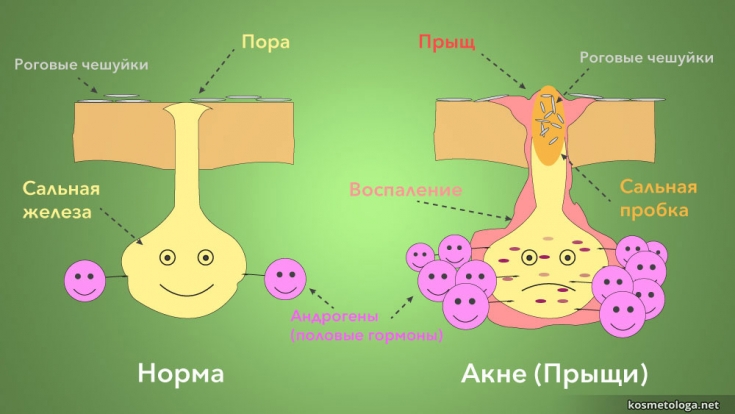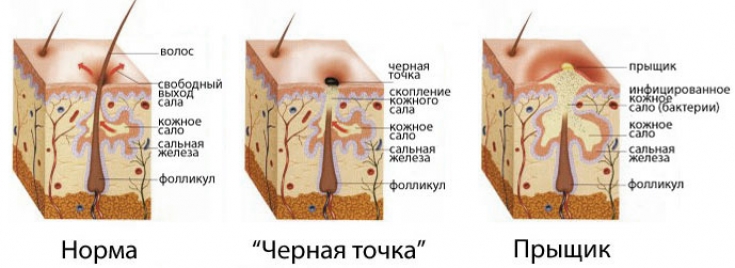Acne on the face and body can be disturbing at any age. Despite the prevalence of this disease, few people know that effective acne treatment, especially hormonal, requires an integrated approach. Why does acne appear on the skin, what hormones can contribute to the development of acne, what foods can aggravate the manifestations of acne – answers to these questions, as well as other facts about acne and hormones, estet-portal.com has collected for you in this article.
Acne & Hormone Facts: Everything you ever wanted to know
Hormones regulate many processes in the human body, which is why their balance is so important for maintaining health. However, with certain diseases or natural age-related changes, the hormonal background changes. Among other things, such changes often lead to the appearance of acne.

For example, many women experience this problem on certain days of the menstrual cycle, as well as during menopause. Estet-portal.com invites you to familiarize yourself with the following facts that will help you better understand why acne appears and how you can get rid of this problem:
- Acne – a disease affecting the pilosebaceous complex, which includes the sebaceous glands connected to the hair follicles.
- Hormonal acne can occur in women and men at any age. Most women experience this problem after the age of 30.
- Acne changes its location: in adolescents, hormonal acne appears mainly on the forehead and nose, and in adults – on the chin and jawline.
- Male hormones androgens stimulate the production of fat (sebum) by the sebaceous glands, which is one of the causes of acne.
- Acne that is too painful may indicate a hormonal cause.

Elevated androgen levels – common cause of acne.
- To get rid of acne caused by hormones, topical remedies are not enough. With this problem, you need to contact a dermatologist who, together with an endocrinologist and / or gynecologist, will select the necessary methods for acne treatment.
- Homone testing is essential for an effective acne treatment plan, especially if acne is accompanied by other symptoms – weight gain, intensive growth of unwanted hair.
- Polycystic ovary syndrome, which is a common cause of acne in women, is also characterized by weight gain, hirsutism, high blood pressure, and irregular menstruation. If such symptoms appear, you should consult a gynecologist.
- Birth control pills can help balance hormones and clear acne in some cases, but only a doctor can prescribe them. However, in some cases, acne may appear after starting or completing a course of oral contraceptives. In this case, you should consult with your doctor and choose another type of medication.
- Spironolactone – a drug that is designed to lower blood pressure is also used to treat acne because it has an antiandrogenic effect.
- Consumption of certain foods, most commonly dairy and high glycemic index foods, may aggravate acne.
- The use of anabolic steroids can cause the so-called bodybuilding acne.
- Contrary to popular belief, poor hygiene is not the cause of acne. What's more, washing too often and scrubbing too hard can make acne worse.
It is quite common for bodybuilders to experience acne due to the use of anabolic steroids.
- Acne can be inherited.
- Stress alone does not cause acne, but it can make the problem worse.
- Treatment of acne, including those caused by hormones, is a lengthy process, taking about 10-12 months.
To get rid of acne, you must first identify the source of the problem. So, if the cause of acne – hormones, therapy should be aimed primarily at correcting the hormonal background, and only after that – to fight acne through cosmetic procedures and topical products.
Nutrition for acne is also an important part of a comprehensive treatment plan.






Add a comment